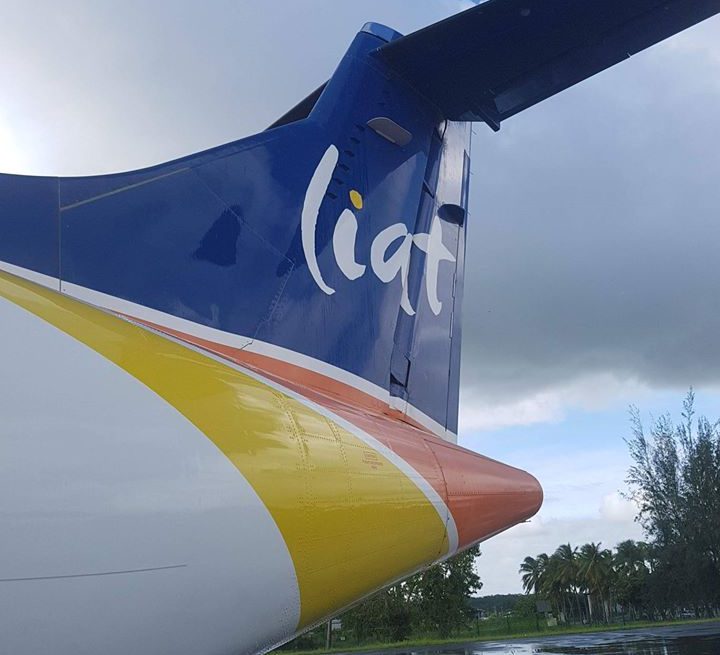
THE EDITOR: The airfare to Miami is less than to Barbados. So tell me, why should I visit Barbados?
If Caricom is to realise the goal of promoting economic integration and co-operation among Caribbean people, then we must have access to each other.
High regional airfares between countries act as a disincentive to regional travel. Taxes, fees and charges (TFC) account for 40 per cent of airfares. Imagine the boost to intra-regional travel which would occur if airfares went down by 40 per cent.

In 2019, over 20,000 citizens in the Caribbean and the diaspora signed a petition asking Caribbean leaders to review the current TFC regime on intra-regional travel and take action to reduce the high taxes applied to regional travel.
The petition was championed by the lobby group Citizens Against High Intra-Regional Travel Taxes (CAHIRTT). So far there has been no response to those tens of thousands of citizens who have tried to make their voices heard.
In seeking support for their petition, CAHIRTT commented, “Over-taxing regional travel is counter-productive to regional connectivity and the growth and productivity of our economies.”
The region’s annual hotel occupancy averages 60 per cent, which means that in a 100-room hotel, 40 rooms are continuously empty. Imagine if another 20 or 30 rooms could be occupied continuously. Decreased airfare is one way to stimulate intra-regional travel for both business and leisure.
Studies have shown that increased visitor arrivals lead to increased economic activity, more tax collection, increased employment, and general stimulation of economies. If the region ever needed economic stimulation the time is now.
A recent article in the Trinidad Express by Asha Javeed reported Caribbean Airlines Ltd (CAL) as commenting: “As part of our strategic plan, we continue to focus on improving regional connectivity. Caribbean Airlines enjoys the largest network in the region, with plans to expand, within the ambit of our resources.”
I welcome this focus because regional connectivity is important for our region to thrive.
It is our reality that measured on a per-mile-flown basis the Caribbean region tops world airfares. As the primary owners of CAL, the TT Government must lead the charge and reduce the 40 per cent TFC on airline tickets in the region.
Such bold action will help CAL achieve its strategic objective of “improving regional connectivity” and provide support for Caricom to achieve its main purpose of promoting “economic integration and co-operation among its members.”
So, we must aim for the day when a ticket to Barbados is lower than the price of a ticket to Miami. This Barbados/Miami analogy is used to make the point that the price of intra-regional travel must inspire citizens to travel both for business and pleasure.
DENNISE DEMMING
Advertise with the mоѕt vіѕіtеd nеwѕ ѕіtе іn Antigua!
We offer fully customizable and flexible digital marketing packages.
Contact us at [email protected]














This is my concern for years now..just imagine The price for a two way ticket on LIAT to Dominica / Antigua cost me $989 for 30 minutes plus the US$50.00 Charge for luggage and if overweiggt by 2 lbs $200.00 added. That’s Crazy and wicked..It’s time we In the Caribbean Boycott Gaston LIAT.These Leaders in the Caribbean has no conscience knowing well the average person can’t afford a ticket to travel the Caribbean..Then They take you around the globe..Bypass Dominica, take you to st.vincent, then to Barbados then to Dominica from Antigua..Craziness!
Gaston Liat. That alone just make you doing dunce
You are misguided. These are small markets with no support from big governments such as the US and Europe. Consider the Essential Air Service program in the US (https://www.transportation.gov/policy/aviation-policy/small-community-rural-air-service/essential-air-service), which gives grants to smaller airports across the US. Also, there are Airport Improvement Program (AIP) funds given to airports as grants for construction.
This is a nuanced subject that should not be just focused on reducing taxes. It should be a bucket of items.
I will only address your first question. The airfare to Miami is less than to Barbados. So tell me, why should I visit Barbados?
First of all, you assume that the reason one travels to Miami and Barbados is the same. Sorry it is not. Many of us travel to Barbados for business. Many times, it is because we need to visit the American Embassy to apply for a visa to be able to go to the same Miami. Next it could be that we need to go to the UWI to study. Or we need to visit friends or family. Or it could be a regional sporting event. When going to Miami most of us do it for shopping. Or just a transit stops to go to another state to visit friends or family. We usually combine our vacation with visiting friends and family. Sometime visiting the USA is because of business meetings. The more fortunate ones do have timeshare apartments in the USA and spend vacation there. Therefore, your first question is very flawed if it is used to make the case between visiting Barbados or Miami. It all depends on what the reason for your visit is
We are in the business of servitude. We ‘need’ visitors and they get first priority for deals. Not us. It has always been like that and will not change. Locals will cough up because we are programmed to accept our 2nd class status. Whilst we can’t change that..perhaps the various small states should come together and find ways of tapping into lost revenues..that might impact positively on the region 9n the whole. For want of a better phrase ..how about a sun, sea and sand visitors Visa. Renewable every 2 years. The US has it. Canada too. A renewal visa entry even if you are not stopping off but passing through their country. Regard8ng the Caribbean…with the thousands and thousands of these visitors salivating for sun sea and sand why doesn’t the Caribbean have such a visa by now? This question may not be related to the question of the failure of regional travel but finding lost revenue is better than trying to squeeze and find ways to cut back. We pay the penalty of affordable flights rolled out to visitors by having to accept arduous and over priced connections from island to island.
Comments are closed.